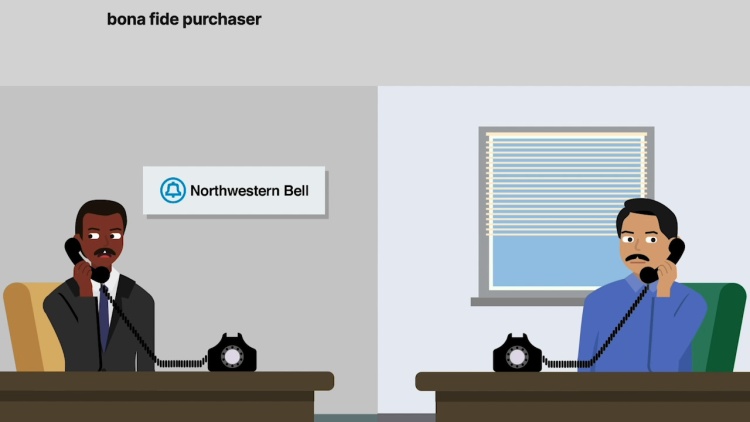Chergosky v. Crosstown Bell, Inc.
Minnesota Supreme Court
463 N.W.2d 522 (1990)

- Written by Rich Walter, JD
Facts
Crosstown Bell, Inc. (Crosstown) (codefendant) rented property to Northwestern Bell Telephone Company (Northwestern) under a lease-purchase agreement. In 1977, Crosstown and George Chergosky (plaintiff) executed a contract for deed that, in return for monthly payments, would eventually convey the property to Chergosky. The contract obligated Crosstown to repurchase the property if Northwestern exercised its purchase option. Even though the contract went unrecorded for years, it gave Chergosky an equitable ownership interest in the property. Robert Griffith (codefendant), a friend and close associate of Crosstown's sole owner, was well aware of the contract's existence. In 1978, Crosstown secured a loan by giving Summit State Bank (Summit) a second mortgage on the property. Summit was a bona fide purchaser because it had no knowledge of the 1977 contract for deed. In 1982, Northwestern notified Crosstown that it would exercise its purchase option, and in January 1983 Crosstown sued Northwestern on the grounds that the notification was not timely. In March 1983, Griffith loaned Crosstown money, and in return, Crosstown gave Griffith a majority interest in the property's ownership. In August 1985, Griffith paid Summit to assign its second mortgage to him, and he recorded the lien. In October 1985, the court rendered its judgment in the 1983 litigation and awarded ownership of the property to Northwestern. Chergosky sued Crosstown and asked the trial court to resolve the relative priority of his and Griffith's claims on the property. The court ruled that Crosstown had breached the contract, and that Chergosky's claim had priority over Griffith's. The appellate court affirmed as to breach of contract but reversed as to the priority of claims. Chergosky appealed to the Minnesota Supreme Court.
Rule of Law
Issue
Holding and Reasoning (Keith, J.)
What to do next…
Here's why 907,000 law students have relied on our case briefs:
- Written by law professors and practitioners, not other law students. 47,100 briefs, keyed to 996 casebooks. Top-notch customer support.
- The right amount of information, includes the facts, issues, rule of law, holding and reasoning, and any concurrences and dissents.
- Access in your classes, works on your mobile and tablet. Massive library of related video lessons and high quality multiple-choice questions.
- Easy to use, uniform format for every case brief. Written in plain English, not in legalese. Our briefs summarize and simplify; they don’t just repeat the court’s language.





